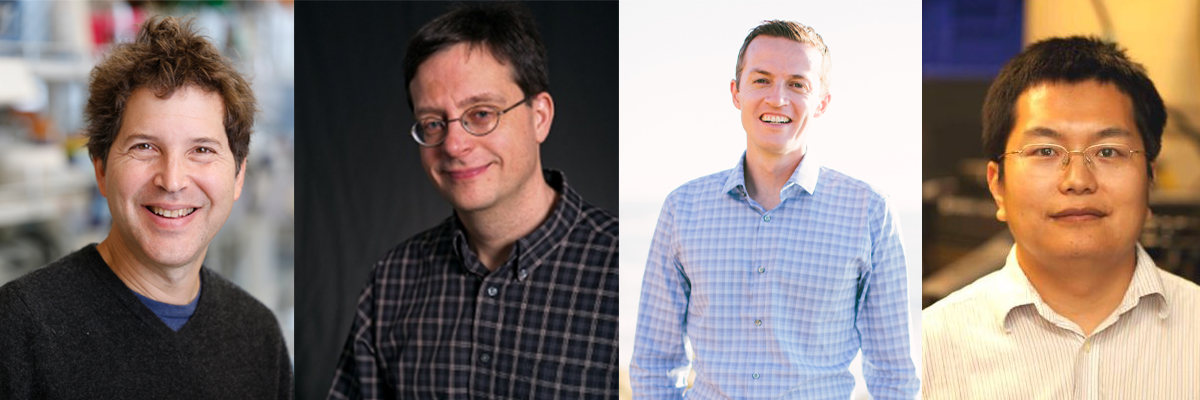UW professors David Baker, David Cobden, David Veesler and Xiaodong Xu make Web of Science’s 2021 list of Highly Cited Researchers

Four researchers affiliated with the Institute for Nano-engineered Systems are among the most influential in the world, according to the annual Highly Cited Researchers list published by the Web of Science, the world’s largest publisher-neutral citation index. The list, which includes Professors David Baker, David Veesler, David Cobden and Xiaodong Xu, identifies scientists who have impacted their field as measured by citation of their work by their peers. The 2021 list includes 6,602 researchers who rank in the top one percent of citations in their field over the past decade.
“I’m thrilled to see the work of these members recognized,” said NanoES Director and Electrical and Computer Engineering Professor Karl Böhringer. “Each of them has made major contributions in their given fields, driving innovation and laying the foundation for new technologies.”
David Baker, a professor of biochemistry, was listed among the most cited researchers in the fields of biology and biochemistry. Baker is the director of the UW Institute for Protein Design. His research group has pioneered the development of robust methods to design novel macromolecular structures with new and useful functions. Baker has published over 500 research papers, been granted over 100 patents, and co-founded 11 companies.
David Cobden, a professor of physics, was recognized for his cross-field research in nanoscale devices like nanowires, nanotubes, and two-dimensional materials. The Cobden group has a particular interest in low-dimensional, topological, and many-body effects and phase transitions.
David Veesler, a professor of biochemistry, was recognized for his cross-field research investigating the structure and function of macromolecular complexes involved in the pathogenesis of infectious diseases such as COVID-19. His research group uses cryo-electron microscopy and other techniques to analyze virus proteins at a molecular and atomic level. Their findings have led to the development of several molecules including vaccines against SARS-CoV-2 and influenza.
Xiaodong Xu, a professor of physics and materials science & engineering, was listed among the most cited researchers in the field of physics. Xu’s research group studies two-dimensional materials — just atoms thick — that can be engineered to have unique optical, electronic, magnetic, and topological properties. These materials could become the foundation of next-generation solar cells, LEDs, transistors, and energy-efficient information processing and storage.
Learn more about what causes a research paper to be highly cited.
